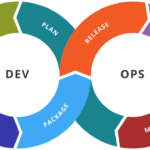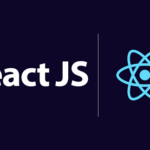Django: A Comprehensive Web Framework for Python Developers
Django is a high-level Python web framework that provides developers with a comprehensive set of tools for building complex and scalable web applications. It was created in 2003 by Adrian Holovaty and Simon Willison and has since become one of the most popular web frameworks in the Python community.
Django’s philosophy is centered around the idea of “don’t repeat yourself” (DRY) and follows the Model-View-Controller (MVC) architectural pattern. This means that developers can focus on writing the business logic of their application without worrying about the underlying infrastructure and repetitive tasks.
Let’s take a closer look at some of the features that make Django a popular choice for web development:
- Built-in Admin Interface: Django comes with a powerful admin interface that allows developers to manage the application’s data without writing any code. This makes it easy to create, read, update, and delete data from the database.
- ORM (Object-Relational Mapping): Django provides a robust ORM that allows developers to work with the database using Python objects, rather than writing SQL queries. This makes it easy to interact with the database and reduces the amount of boilerplate code required.
- URL Routing: Django’s URL routing system allows developers to define URLs for their application and map them to views. This makes it easy to create complex, dynamic URLs and manage them in a central location.
- Template System: Django’s built-in template system allows developers to separate the application logic from the presentation layer. This makes it easy to create reusable templates and maintain a consistent look and feel across the application.
- Security: Django provides a range of security features, such as cross-site scripting (XSS) protection, CSRF protection, and password hashing. This helps to ensure that the application is secure and protects user data from malicious attacks.
- Scalability: Django is designed to be scalable and can handle large volumes of traffic and data. It provides a range of caching mechanisms, database sharding, and load balancing tools to help ensure that the application remains performant under heavy loads.
- Community: Django has a large and active community of developers who contribute to its development, create extensions and packages, and provide support and guidance to new users. This community has helped to make Django one of the most popular web frameworks in the Python ecosystem.
Overall, Django is a powerful and flexible web framework that provides developers with a comprehensive set of tools for building complex and scalable web applications. Its focus on DRY, MVC architecture, and built-in features make it an ideal choice for Python developers of all skill levels.
Download Latest Django Version from here..







